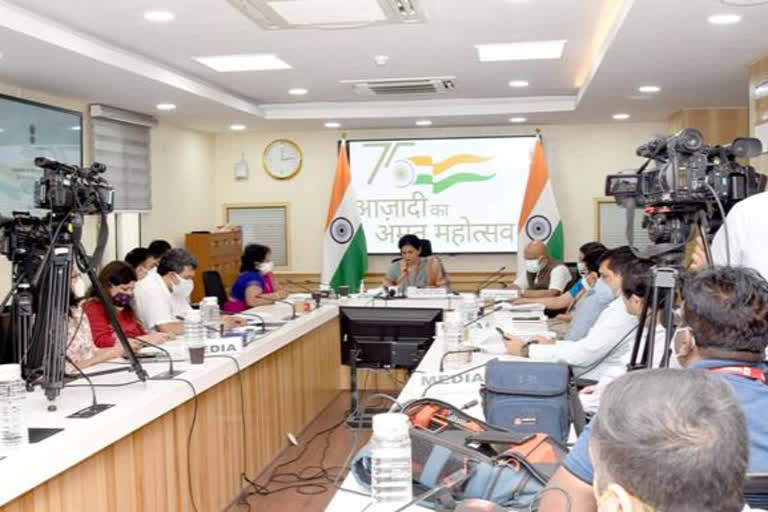New Delhi: In a major policy shift, the Union government on Tuesday announced big changes in the industrial safety rules related to petroleum and explosive sectors in the country that will reduce compliance burden and improve ease of doing business among other things.
The new rules announced in the wake of the Covid-19 global pandemic also simplify the rules related to filling and storage of industrial and medical gases as transportation of liquid oxygen through ISO tankers has been permitted.
In the wake of a devastating second Covid wave, the Department of Industrial Policy and Promotion carried out a comprehensive review of the industrial policies related to the installation of petroleum plants, explosives manufacturing facilities, transportation and storage of hazardous materials, cylinder filling and storage premises etc.
The exercise was carried out by the Petroleum Explosives Safety Organisation (PESO), an autonomous body under the DPIIT. In September last year, the government allowed transportation of liquid oxygen through ISO tankers to meet the urgent need for medical oxygen in deficit areas to deal with the Covid-19.
Also Read: In a first, Indian Railways to transport oxygen to Bangladesh
Now the provisions have been incorporated in amended rules to allow transportation of cryogenic compressed gases such as Oxygen, Argon, Nitrogen, LNG etc through ISO containers in domestic areas.
“This will help to transport Liquid Oxygen from surplus areas to deficit areas and promote multimodal transportation of these gases by road, rail and waterways. It will reduce the transportation cost as well as time,” said the government.
In addition to this, the government also simplified certain other rules to increase the ease of doing business. These rules are broadly related to three areas – rules related to static and mobile pressure vessels and the rules related to production, storage and transportation of calcium carbide and ammonium nitrate.
In the case of SMPV rules, the government has allowed the concept of a third party inspecting agency (TPIA) to carry out the work related to certification, testing, inspection and safety audit of the licensed premises. It also reduced the minimum experience required for conducting tests and certification from 10 years to 5 years to increase the trained manpower.
More importantly, for such industrial units that are required to obtain a licence or no-objection certificate from local authorities for storage, filling and transportation of hazardous materials, the time limit for the issue of NoC has been reduced to two months. If district authorities do not decide on an application within two months, then the NoC will be deemed to be issued.
The government has also done away with the need to submit applications to obtain duplicate licences. System generated online copy will be accepted by the authorities.
Also Read: No deaths due to lack of oxygen reported by states/UTs during COVID-19 second wave: Centre
In the amendments related to the storage of calcium carbide, the PESO has increased the validity of the licence period from 3 to 10 years. The duplicate licence can be generated online and fees can also be paid online.
In order to monitor the premises for storage of calcium carbide, the provision of geo-mapping of the premises is incorporated in rules that will be shared with central and state authorities.
The rules related to the storage and handling of ammonium nitrate have also been simplified and the transfer of ammonium nitrate from one location of the licensee to another location has been permitted. It also permits the storage of ammonium nitrate in smaller warehouses.
The rules related to the installation of fire-fighting facilities at ammonium nitrate plants have been simplified. The government has also reduced the time for obtaining NoC from district authorities and director-general of mine safety from 6 months to 3 months. Under the new rules, ammonium nitrate can only be imported into the country in bagged form and import of loose ammonium nitrate has been banned to prevent its pilferage.
Also Read: PM to chair meeting to review availability of oxygen across country



